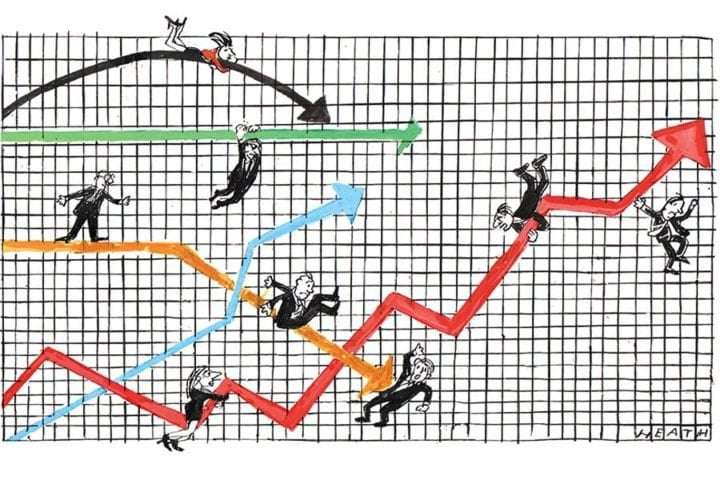It’s not often that we see a GDP revision as startling as the one published today. In its Blue Book for 2023 – which includes updated methods for a range of calculations – the Office for National Statistics (ONS) has upgraded the size of the economy in the final quarter of 2021 by 1.7 per cent. This means that by the time the Omicron variant hit, the UK economy was actually 0.6 per cent above its pre-Covid level – not 1.2 per cent below, as previously stated.
This is a staggering difference. It was thought as recently as this summer that GDP still had not returned to its pre-pandemic levels. Today we learn this milestone was actually passed almost two years ago.
This changes the international picture completely. The UK has been labelled an outlier for years now, compared to the other advanced economies, seemingly struggling to make the Covid recovery. Today’s revisions don’t propel the UK to the top of the list, but they certainly remove its outlier status (which now goes to Germany). These countries may well come to revise their GDP data too, but for now the UK is not the laggard.
We can now see that, the UK’s economic recovery in 2021 was stronger than that of France, Germany, Italy and Japan. In the G7, only the United States and Canada saw greater GDP recovery.
How could the figures have been so badly out? The ONS points to a fog of lockdown-era data, now lifting. ‘We have richer data from our annual surveys and administrative data,’ says the ONS. ‘We are now able to measure costs incurred by businesses’.
Revisions are part and parcel of economic data — and bigger updates might be expected around the time of the pandemic, due to the radical changes that were taking place and the difficulty of tracking business activity at the time. But today’s update will have a lot of people asking now how much we can rely on GDP figures when such important data turned out to be so wide off the mark – and how great the margin of error really is.
Today’s upward revision can be read as a surprising good news story: one that shows the UK’s economy nowhere near as stagnant during those Covid years as originally thought. It’s also going to give more weight to those who argue that the UK growth forecasts for this year and next are far too negative. This will be put to the test at the end of the month, when the ONS’s revised methodology is applied to the Q2 figures for this year, which were first reported as a measly 0.2 per cent between April and June 2023.
It will be an opportunity for the optimists to be proven right. But the flip side, however, is if we learn from those figures that the UK economy has indeed slowed down to a snail’s pace since the pandemic recovery. Still, that recovery will no longer label sluggish, but rather a fairly impressive bounce back.

Wazzok1 on September 1st, 2023 at 21:03 UTC »
Would this affect current figures? I'm very suspicious that a retroactive upwards revision would mean that future statistics showing negative growth would be lifted upwards, so as to avoid bad press. Unemployment is rising in the UK and interest rates are not coming down.
1bir on September 1st, 2023 at 17:25 UTC »
This means monetary policy has been too loose, esp mid-2020 through 2021, & aside from that is probably too loose now because output gap estimates will come out smaller with this new data.
No other mention of a revised methodology; what the ONS said just suggests firms just weren't filling in their surveys during the lockdowns.
SlamMissile on September 1st, 2023 at 16:26 UTC »
SS: It’s not often that we see a GDP revision as startling as the one published today. It was thought as recently as this summer that GDP still had not returned to its pre-pandemic levels. Today we learn this milestone was actually passed almost two years ago.
The UK has been labelled an outlier for years now, compared to the other advanced economies, seemingly struggling to make the Covid recovery. Today’s revisions don’t propel the UK to the top of the list, but they certainly remove its outlier status (which now goes to Germany). These countries may well come to revise their GDP data too, but for now the UK is not the laggard.
We can now see that, the UK’s economic recovery in 2021 was stronger than that of France, Germany, Italy and Japan. In the G7, only the United States and Canada saw greater GDP recovery.
How could the figures have been so badly out? The ONS points to a fog of lockdown-era data, now lifting. ‘We have richer data from our annual surveys and administrative data,’ says the ONS. ‘We are now able to measure costs incurred by businesses’.